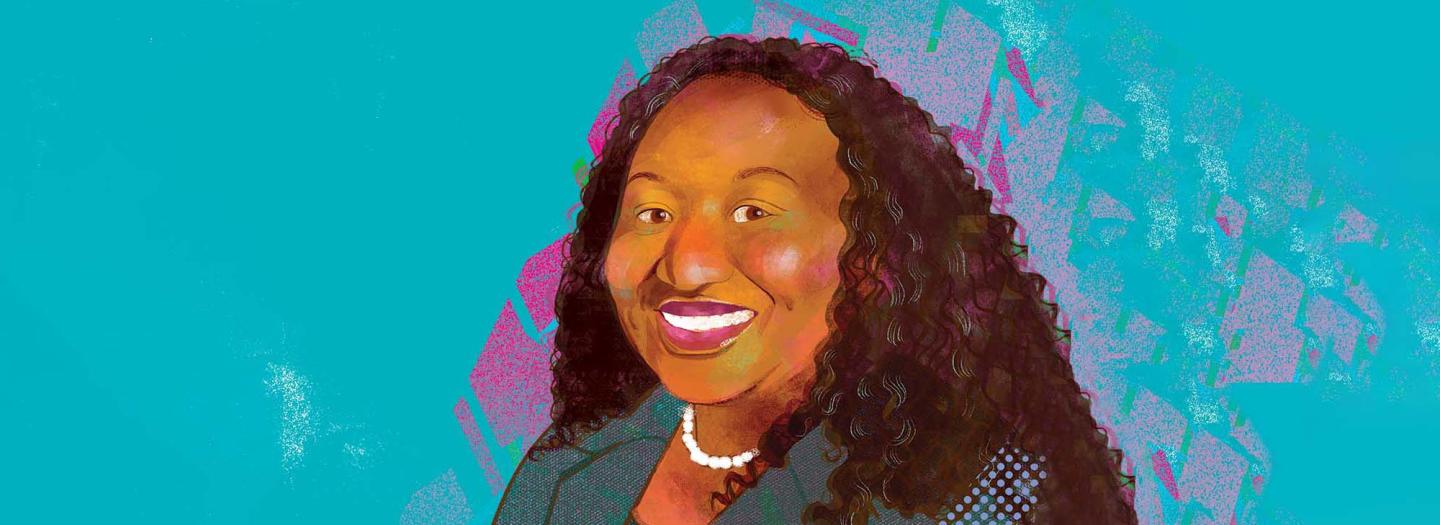Ifeyinwa Asiodu, RN, MS ’12, PhD ’14 : Social media’s starring role in the health of Black women and infants
Ifeyinwa Asiodu uncovered the importance of social media as a key driver of connection and change for Black mothers.

Illustration: John Jay Cabuay